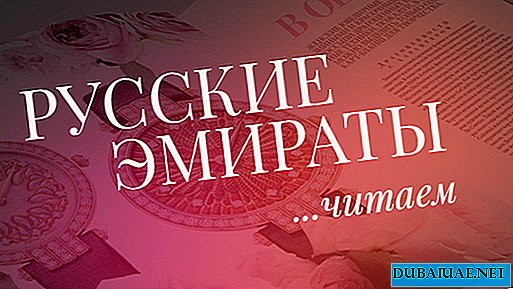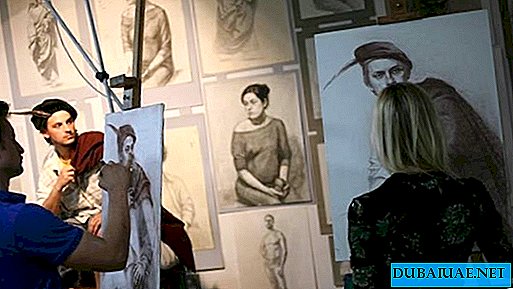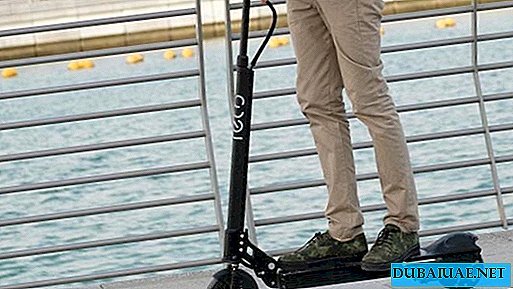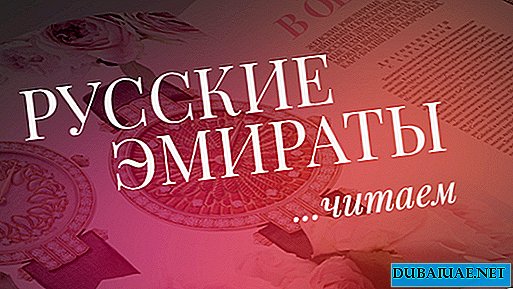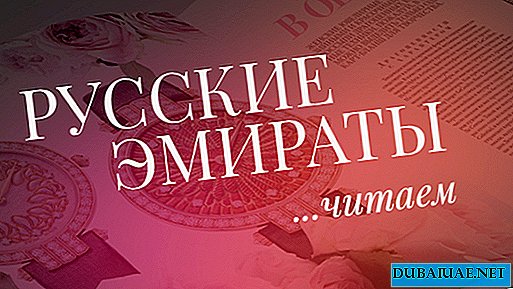
The last bell rang, school breaks rustled. In the classrooms there is a booming silence, you can’t hear the child’s hubbub ... The long-awaited summer holidays, loved by all the students, have begun. And on September 1, a private Russian school in Dubai will enter its tenth academic year, opening the doors for 200 students, 20 teachers and five staff.
Back in 1996, the first school with instruction in Russian was opened in the Khor al-Anz district. Then she bore the name of the first (and so far only) sponsor of Isa Mohammed Majid Al Nuaimi and was called Al Nuaimi Language Institute. Due to numerous organizational difficulties, the school year did not begin on September 1 (as is customary in all schools), but two weeks later. Among the 35 applicants were children of all ages. Therefore, all classes, from the first to the eleventh, existed from the very first day. Despite the fact that, for example, there were only two first-graders, the lessons for them (like all the others) were taught according to the general educational Russian program.
Immediately, in the first academic half-year, shortcomings and difficulties appeared. Catastrophically lacked professional teachers, did not have the required number of textbooks, school uniforms; many other problems arose, minor and not very. But the founders of the school turned out to be true enthusiasts in their field. The school continued to develop, largely thanks to the support of the leadership of Volgograd Gymnasium No. 3. The first three graduates of the 1996-97 academic year received international certificates. They gave the children the right to enter any university both in Russia, in the UAE, and in other countries of the world.
A year later, the Al Nuaimi Language Institute already had a full staff of professional teachers and the status of a private Russian school in Dubai. In 2002, the first founding director, Elena Viktorovna Najib, was replaced by Marina Borisovna Halikova, who runs the school to this day. According to the new director, the school is no longer able to accept all the children who want to study in it: there are simply no places in the small classes of the old two-story villa.

A new, more spacious building has not yet been found. Therefore, children can not properly engage in physical education or attend clubs and sports sections. All additional classes and activities are held outside the school walls. So, S.A. Streltsova leads a drawing circle at home; the works of her students are exhibited in the lobby of the Grand Hotel. Music lessons are held either in the auditorium or in a private music school in Sharjah. The children learn needlework and creative craft in the lessons of T.N. Turkova (teachers of the highest category); their best crafts take pride of place in the director’s office. There is also a school library, collected by the efforts of teachers and parents of students.
The school staff includes the best representatives of their profession. The title "Teacher of the highest category" was awarded to the teacher of the Russian language V.A. Bessonova, teacher of mathematics T.N. Kravtsova and the writer of E.N. Glazyrina, and the teacher of literature G.V. Shknai has a degree. Thanks to such teachers, school graduates take exams externally, participate (and win prizes) in thematic Olympiads, and receive scholarships from international universities.

This year, the American University in Dubai proposed that the school nominate a candidate for a university scholarship. The best student of the school was Katya Zabolotnaya, who now has to study at the Faculty of Business Administration.
Another pride of the school is the Kalinka dance ensemble, which has been led by Lilia Gennadevna Kim for nine years. Kalinka is known and loved in the Emirates as the guardian of national culture; She is often invited to speak at various events taking place in Dubai and beyond. Residents and guests of the country will probably remember the ensemble performing at the concert venue in the Heritage Village during the Trade Festival. Children make colorful costumes together with parents and teachers; choreographic performances are discussed by all members of the ensemble. Of course, the composition of Kalinka is not constant. Dancers change as they graduate and new students enroll in it — but this does not decrease the number of people wishing to learn Russian folk dances. Choreography teachers do not refuse anyone, although classes are held after lessons, for 2 hours every Tuesday, with a tight study schedule and large homework.
The Russian school has demonstrated its achievements both in educational indicators and in preserving folk traditions. I would like to believe and hope that in the near future, students will move into a new spacious room with roomy and comfortable classes. Then the school will be able to take for school desks not 200 children, as it is now, but six times more, providing them with interesting physical education lessons and many extra-curricular activities.
Elena Balina



